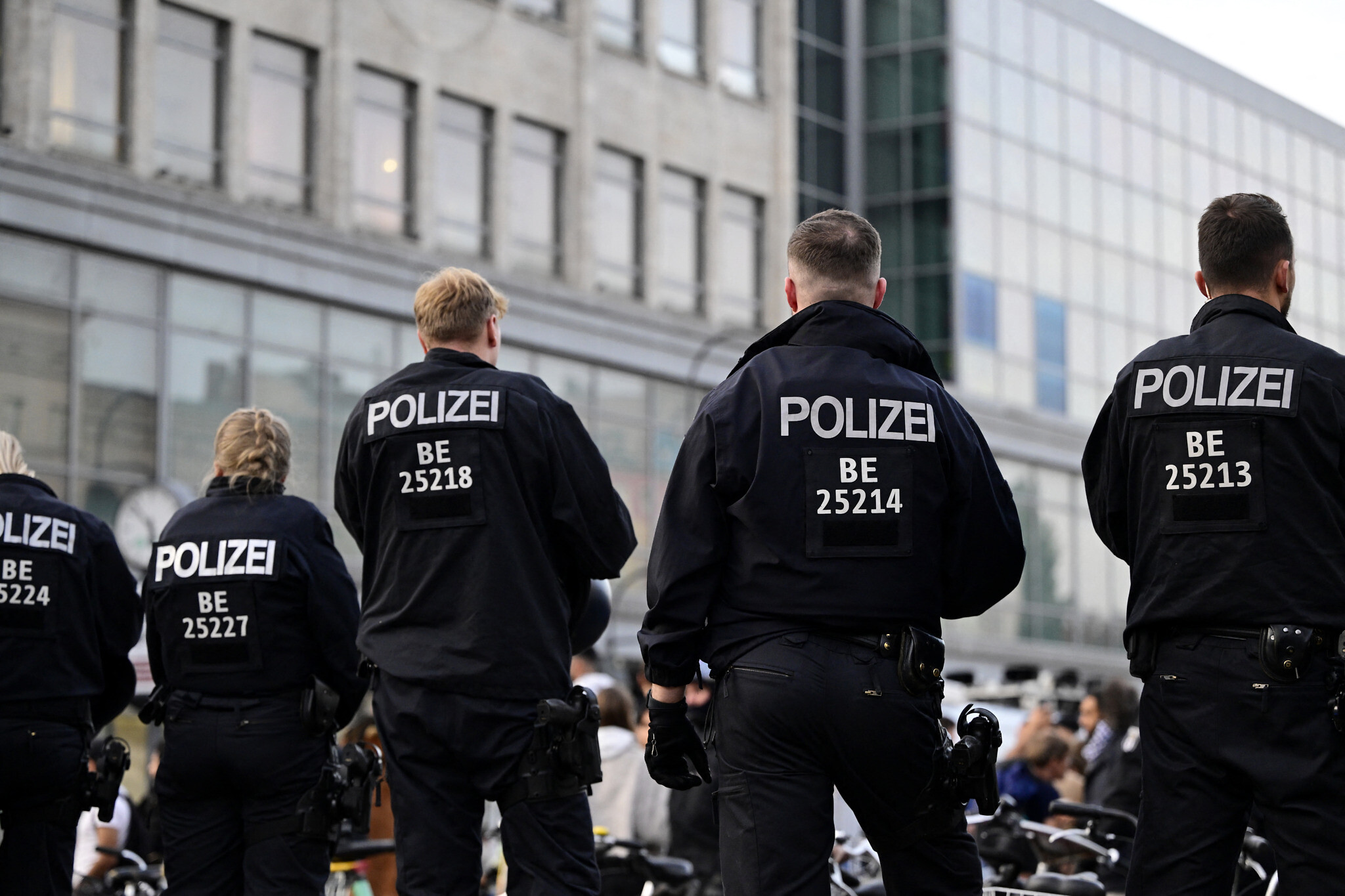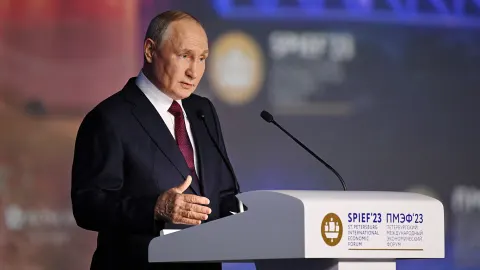Foreign
Coups: Elders forum urges African leaders to prioritise citizen’s welfare

West African Elders Forum (WAEF) has urged African leaders to put citizens’ welfare, peace, and security at the centre of governance, to consolidate democracy in the region.
Participants at the ‘State of Democracy’ webinar, organised by WAEF, an Initiative of Goodluck Jonathan Foundation (GJF), gave this advice in a statement by its Communications Officer, Mr Wealth Ominabo, in Abuja.
The theme of the conversation is entitled: “Making meaning of democratic reversals in West Africa.”
The participants examined the challenges to democratic governance in the region and how best to advance democracy amid the growing trend of coups and unconstitutional change of government.
The speakers at the virtual meeting also urged governments, regional and sub-regional bodies, to invest more in citizen-centric initiatives that would help serve as a buffer against threats to democracy.
They also called for strengthening democratic frameworks in countries to ensure accountability and guarantee free and credible elections.
The panelists noted that a decline in the region because of the poor state of governance had led to frustration and trust deficit between citizens and government.
They called for the rethinking of democracy in the continent to address citizens’ contemporary realities.
Former Vice President Fatoumata Tambajang of the Gambia, in her contributions, attributed democratic reversal in the region to political leaders’ disregard for normative values of democracy and inability to deliver on their political promises.
“It is time to rethink democracy within our context. First of all, what are the factors leading to democratic decline?
“The context in the Sahel is complex because we have civil leaders who are not ready to respect the constitutions and civil institutions. They are also not ready to deliver on their democratic promises.
“Most of our leaders believe that after soliciting for votes and getting victory at the polls, they forget to deliver their promises to the people.
“Citizens are getting more aware and saying they are tired of voting and not seeing results.
“They are saying we want decent lives; we want food in our homes; we want security and competent people in the civil service who can deliver on services.
“They are equally saying we want equal opportunity, gender equality,” Tambajang said.
Also, Mr Remi Ajibewa, former Director, Department of Political Affairs, Peace and Security at Economic Community of West Africa States (ECOWAS) Commission, suggested that ECOWAS should focus more on citizens than incumbent presidents.
Ajibewa highlighted the many initiatives ECOWAS had done to safeguard democracy in the sub-region.
“We intend to see civilian coups, which manifest in referendums, popular uprising, military-assisted transition, and constitutional review after the election.
“Not that ECOWAS has not been doing well. It is a problem of perception.
“Citizens within the continent see ECOWAS as a body more interested in securing the regime of incumbent presidents and not working for the people’s interests.
“ECOWAS needs to move from ECOWAS of the government to ECOWAS of the people, ” he said.
Ajibewa also said that safeguarding democracy in the continent required collective effort.
He urged all stakeholders to work towards protecting and promoting democracy in the region.
“All of us, from civil society to member states, to ECOWAS, AU to the UN, all have a role to play.
“We need to mobilise to strengthen member states institutions to have a peaceful and inclusive electoral system,” Ajibewa said.
The Executive Director of Sahel Institute for Democracy and Governance, Mr Moussa Kondon, called on ECOWAS to redouble its efforts to protect democracy in the sub-region.
Kondon, also a panelist at the webinar, said that with ECOWAS, it was always negotiation and tonnes of negotiations while people were suffering.
“With globalisation, people have access to information and are more informed than before.
“ECOWAS must proactively engage and uphold its relevant instruments, especially those promoting democracy and good governance,” he said.
Foreign
3 teens arrested in Germany for allegedly plotting terror attack

German authorities have arrested three teenagers aged 15 and 16 on suspicion of plotting a deadly Islamist terrorist attack in the western German state of North Rhine-Westphalia, prosecutors said on Friday.
The state’s Central Office for the Prosecution of Terrorism (ZenTer NRW) sought an arrest warrant for the teenagers over the Easter holiday.
They were suspected of plotting a terrorist attack in accordance with the aims and ideology of (extremist militia organisation) Islamic State.
The detained suspects are a 15-year-old girl from Dusseldorf, a 16-year-old girl from the Märkischer Kreis district and a 15-year-old boy from the Soest district, located about 100 kilometres to the east of Dusseldorf.
A fourth suspect has reportedly been identified in the south-western German state of Baden-Württemberg, and the local court there has issued an arrest warrant.
According to the investigators, the teenagers are accused of having agreed to commit murder and manslaughter.
This is in conjunction with the preparation of a serious act of violence endangering the state.
The presumption of innocence applied in all stages of the proceedings.
Security sources told newsmen that the young people had formed a chat group, but had not drawn up a concrete attack plan for a particular time and place.
However, sources said the cities of Dortmund, Dusseldorf and Cologne were discussed as targets, and attacks with knives and Molotov cocktails on people in churches or police officers in police stations had been considered.
The sources said authorities had also conducted searches as part of the investigation.
A machete and a dagger were seized in Dusseldorf, but no evidence of the construction of incendiary devices was discovered.
Sources said the father of the Dusseldorf suspect had already attracted attention from authorities in the past because he had allegedly collected donations for the Islamic State.
The investigators declined to reveal how the suspected terrorists were tracked down, but said that foreign intelligence agencies “did not play a role.”
Foreign
Putin Registers As Candidate For Russia’s Next Presidential Election

Russia on Monday officially recognised Vladimir Putin as a candidate for the presidential elections in March, a vote that he is all but certain to win.
The 71-year-old has led Russia since the turn of the century, winning four presidential ballots and briefly serving as prime minister in a system where opposition has become virtually non-existent.
The Central Election Commission said it had registered Putin, who nominated himself, as well as right-wing firebrand and Putin-loyalist Leonid Slutsky as candidates for the vote.
The election will be held over a three-day period from March 15 to 17, a move that Kremlin critics have argued makes guaranteeing transparency more difficult.
Following a controversial constitutional reform in 2020, Putin could stay in power until at least 2036.
Rights groups say that previous elections have been marred by irregularities and that independent observers are likely to be barred from monitoring the vote.
While Putin is not expected to face any real competition, liberal challenger Boris Nadezhdin has passed the threshold of signatures to be registered as a candidate.
However, it is still unclear if he will be allowed to run, and the Kremlin has said it does not consider him to be a serious rival.










